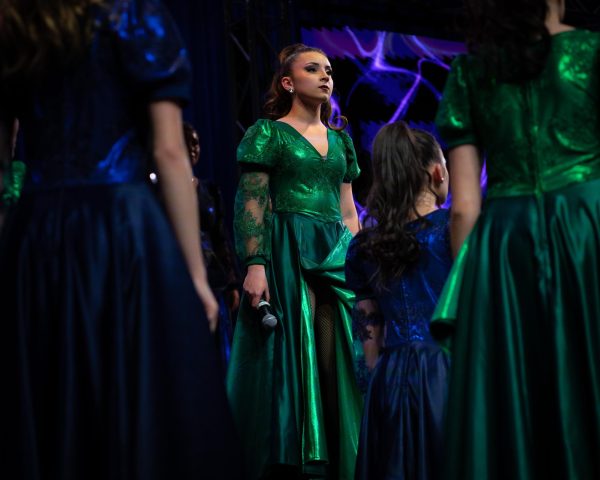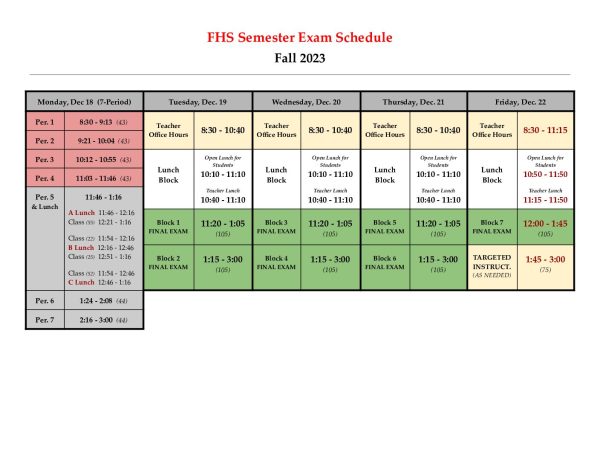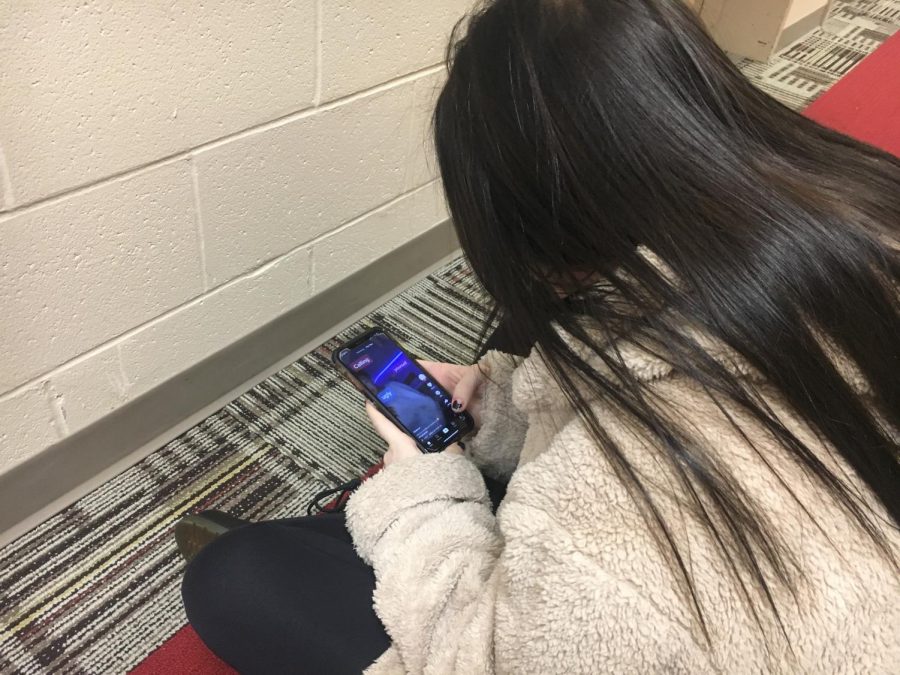TikTok gets politics wrong
Junior Cayce Kidd watches TikTok in the hallway before class on Jan. 24
Instead of the usual point of views and dance tutorials, the “For You Page” on the popular app, TikTok, is flooded with #WWIII and impeachment satire. TikTok has a worldwide audience, creating trends including the “Renegade” and powerful makeup looks, but the number one trend seen on the well known app is creating humorous content of political situations, specifically US politics.
Many content creators are trying to make a short, entertaining video to blow up across the internet, however the majority of the content posted has misleading information regarding US politics. Viewers of these videos are resharing the content with their friends or reposting on their social media platforms. The misconceptions posted are causing controversy between users, arguing in the comment section, on other social media platforms and in school.
“It’s crazy how many students I have overheard in the hallways freaking out of the idea of being deployed because of the TikToks spreading across social media. The thing is, most of them wouldn’t be so freaked out if they simply watched the actual news instead of believing everything on the internet,” said junior Cayce Kidd.
Not only has some users seen politically incorrect content on TikTok, but even TikTokers themselves have seen the same content in their feed. Sam Wachter, or known on TikTok as yeet.dat.sam, has seen these misconceptions in his feed and with his political background knowledge, he has recognized the misled errors.
“I think a lot of them are spreading these misconceptions on purpose. I see a lot of people posting conspiracy theories about various candidates as if they’re facts instead of just theories,” said Sam Wachter.
Misled posts on TikTok is seen just as similar to fake news. With young adults, teens and children on the app, most believe this information without doing their independent research to fact check these posts.
“Let’s be honest, as teens we’re more impressionable than we realize and this stuff that we in many cases automatically believe can really change the way we see things in a negative way,” said Sam Wachter.

Hayley Brown is a senior at Fishers High School and is a reporter for the newspaper. She is a music enthusiast and reports mostly about politics and ethical...






